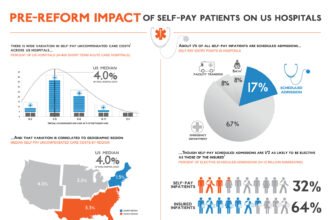
Quality measures, low service utilization or the absence of poor performance is not measuring patient outcomes

Quality measures, low service utilization or the absence of poor performance is not measuring patient outcomes
I apologize for the sports analogy, though it fits so well that I could not resist. Can you imagine if we received statistics like base hits (baseball), first downs (football) and rebounds (basketball), while all final scores remained unknown? It would be similar to how our healthcare system measures patient outcomes.
The healthcare system measures an abundance of interesting statistics, yet it lacks any final scores. With hospitals, we measure death rates for heart attack patients, timeliness of administering antibiotics and the use of medical imaging. While this is critical information, we have no idea if the patient ever felt better or went back to work.
With physicians, we measure if they followed the recipe to treat asthma, heart failure, diabetes, dementia and other conditions, yet we know virtually nothing as to whether patients get better or their adverse conditions were stabilized. It’s as if a condition is a separate entity from the patient, though it is how physicians are reimbursed and measured. We don’t have patient outcomes that measure if patients remain limited by their conditions, make progress or recover.
Medicare has launched Hospital Compare and Physician Compare that assembles massive amounts of statistics. It provides the percentage of people in your local hospitals that died, acquired a serious infection or were readmitted within 30 days. If you were considering a hip replacement, you may be disappointed by the limited answers to your typical questions. You will not find how long before patients typically walk, their pain and discomfort levels over time or how people rate the overall success of the procedure. If you want to purchase a $17 book on Amazon, you get one to five star rating based on 6,000 reviews and plenty of lengthy opinions. For the hip replacement, you may need to rely on anecdotal stories from random people and hope things turn out like someone’s uncle Joe. The purpose of the hip replacement is to walk better, reduce pain and improve quality of life. You may calculate your odds of dying in the hospital, though you may have to wing it as to whether it will improve your well-being.
The emerging reimbursement models such as Accountable Care Organizations (ACO), Bundled Payment and provider/health plan risk sharing should help shift the focus from treating conditions and providing services to overall patient outcomes. Yet, if the goal of improving patient outcomes becomes simply about lowering overall costs, it may come at the expense of getting the patients back to work or to minimize their functional limitations. ACO Quality measures, such as lowering blood pressure, should not take the focus off getting the patient back to their normal activities. Achieving HEDIS quality measures ensures health plans get high star ratings. Yet it loses its importance if patients can’t give a one star for poor performance due to lack of support in reducing their pain so they can attend their grandchildren’s soccer game.
With cloud computing and survey sites like Survey Monkey becoming inexpensive, it would not cost much to offer a Patient’s Outcome survey periodically to get valuable information from us:
- How do you feel physically? Pain, nausea, health concerns or worries
- How do you feel emotionally? Mood, sentiment, health outlook
- Are you functional? Walking, talking, working, activities of daily
- Are you functionally able to achieve your purpose and meaning in your life? i.e., pursue passions, be a parent, run a marathon, work, etc.
- How would you rate your overall health?
We may want to know the answers to these questions after someone has surgery or a treatment:
- How was the performance of your providers?
- How was the effectiveness of your treatments?
- How would you suggest improving performance?
The Patient Outcome survey would not need to be mandatory like the thousands of statistics we require our hospitals and physicians to collect. A patient could take the 2 to 3 minute survey when they check into the Emergency Room, Hospital or Ambulatory Surgery center. They could be emailed the link to revise the survey 30, 60, 90, 180 and 360 days after their initial survey. While linking these survey results with the rest of the massive amount of performance data collected would not be trivial (i.e., privacy), every day we wait we miss out on the meaningful insight they would provide on patient outcomes.
The statistics we collect are important for treating conditions and providing services, though I suspect the Patient Outcomes surveys could be as important to patients. It would get us much closer to getting the patient outcome equivalent of final sports scores rather than just the game statistics.
measuring outcomes / shutterstock







